What Exactly is a Whole Plant Food?
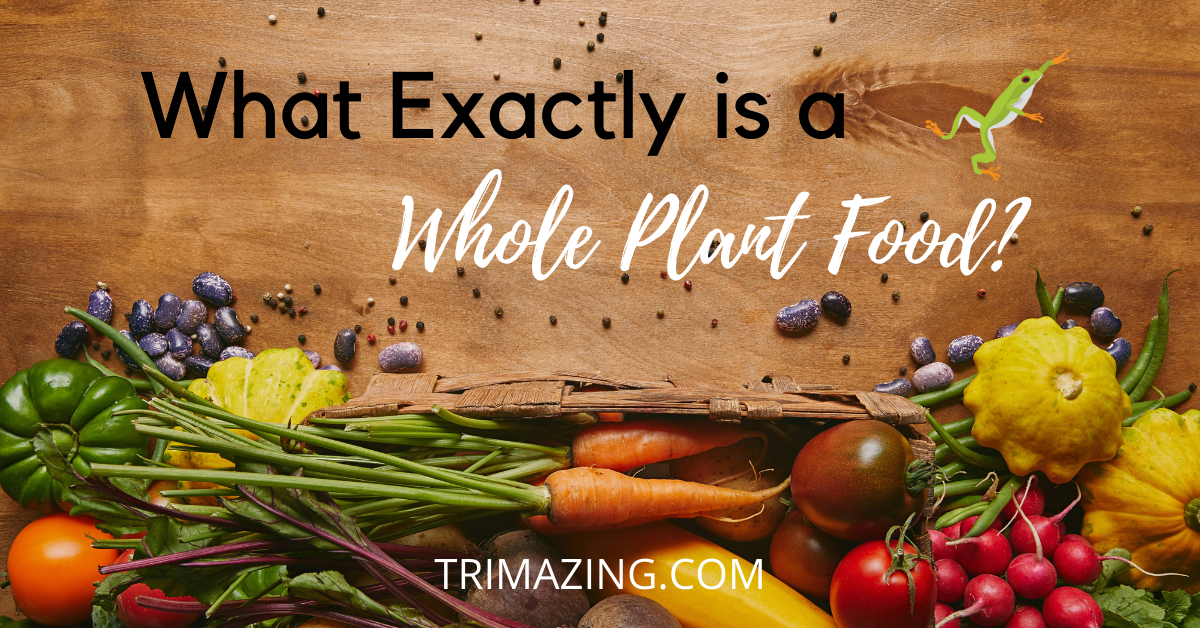
People often get confused by the term whole when we talk about eating a whole food, plant-based (WFPB) eating pattern. As I discussed in What is WFPB Vegan?, WFPB includes foods in their whole, unrefined, unprocessed state. But what does this really mean? Can you cook your food? Is is okay to use canned or frozen vegetables? What about bread? Tofu? Let’s clear up the confusion!
What is Whole?
In Whole: Rethinking the Science of Nutrition, T. Collin Campbell, PhD defines plant-based whole foods as those “in forms as close to their natural state as possible.” This includes vegetables, fruits, grains, nuts and seeds, and fungi. He goes on to recommend limiting heavily processed foods, added sugar, oil, and salt.
This doesn’t mean that you don’t cut or cook your foods, it simply means minimizing processed or refined foods.
But What is a Processed Food?
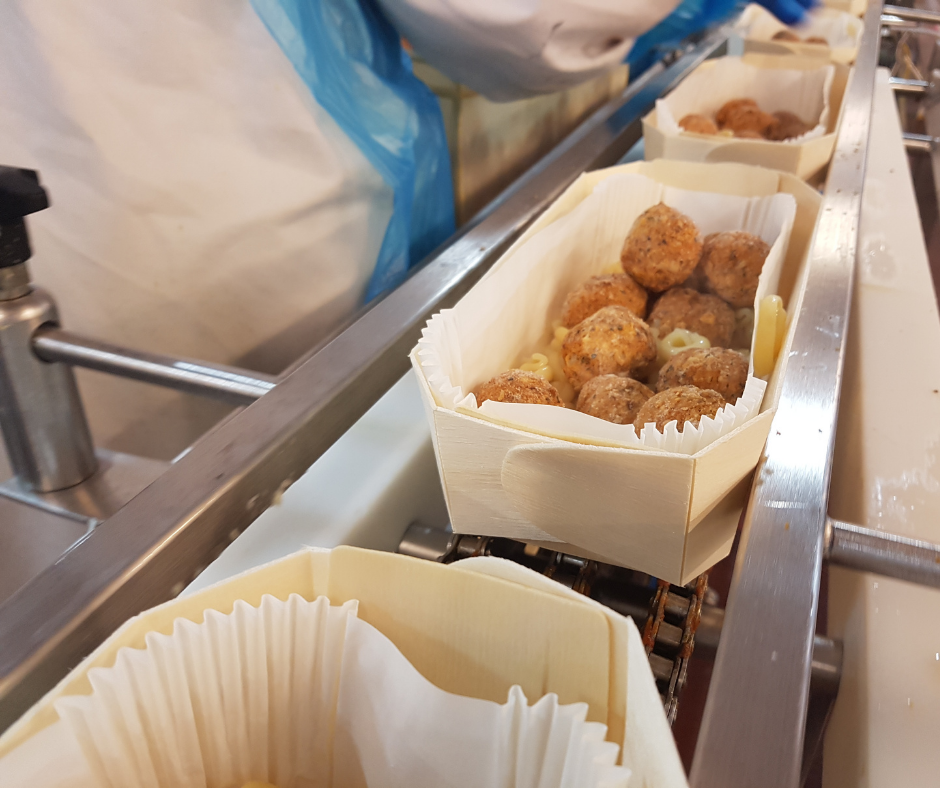
Processed food, photo from Canva.com
The hiccup when people are just starting out is in the definition of processed food.
Webster Dictionary defines “processed” as “having been subjected to a special process or treatment (as in the course of manufacture).” That doesn’t really help people with questions about cooking or using canned or frozen foods, tofu or tempeh, plant-based milk, etc.
Dr. Campbell’s son, Thomas Campbell, MD, defines processed food as a fragment of an original food. This is where parts of the original food are removed or stripped away during manufacturing of that material (I won’t call it food at this point). In this case, processing removes fiber and other nutrients that are then oftentimes replaced with oils, sugars, flavors, or colors.
If it came from a plant, eat it; if it was made in a plant, don’t!
Michael Pollan, Food Rules: An Eater’s Manual, Rule #19.
In essence, a processed food is where anything positive (fiber, vitamins, phytonutrients, etc.) is removed and/or anything negative (oil, flavorings, refined sweeteners, colors, vitamins, etc.) is added back in (also called enrichment).
Manufactured Foods
Here are some key categories of manufactured food.
Refined Grains
Refined grains are those that have had the bran and germ removed, leaving just the starchy endosperm. Removing these parts of the grain dramatically reduces fiber, protein, and nutrients. It is often done to make grains more shelf-stable (the germ can go rancid) and lighter in color or less coarse in texture.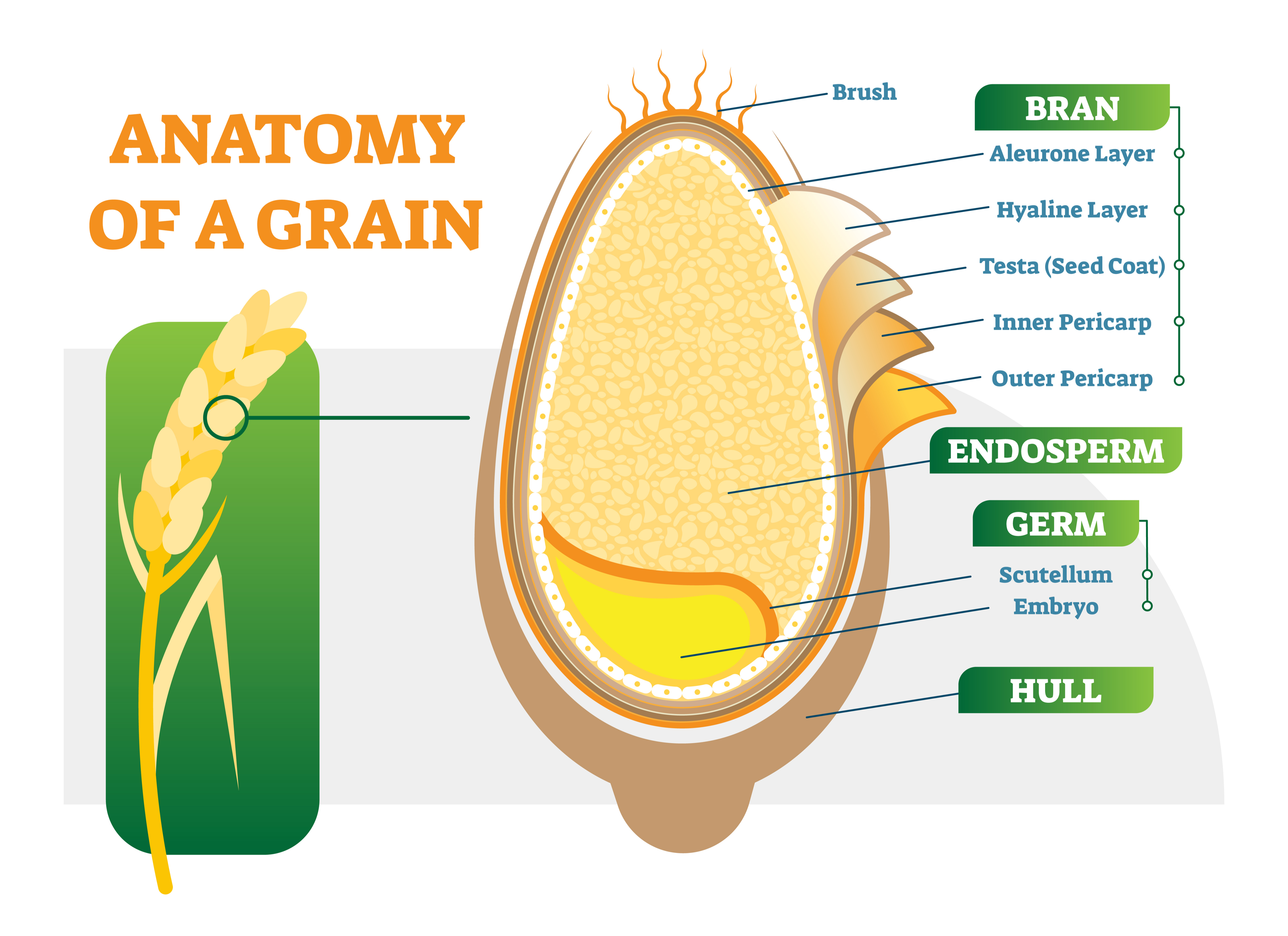
You want whole grains with the bran, endosperm, and germ intact. Image from Shutterstock.com
Items to avoid:
- White Flour
- Bleached Wheat Flour
- All-Purpose Flour
- Enriched Flour—this sounds great, but it’s simply white flour that has had vitamins and minerals stripped during the refining process added back in for “nutrition.”
- Multigrain—also sounds great, but unless it says “100% Whole,” this is just a mixture of more than two refined flours from different grains!
- White Rice
- Polished Rice
- Instant Rice
Isolated Plant Proteins
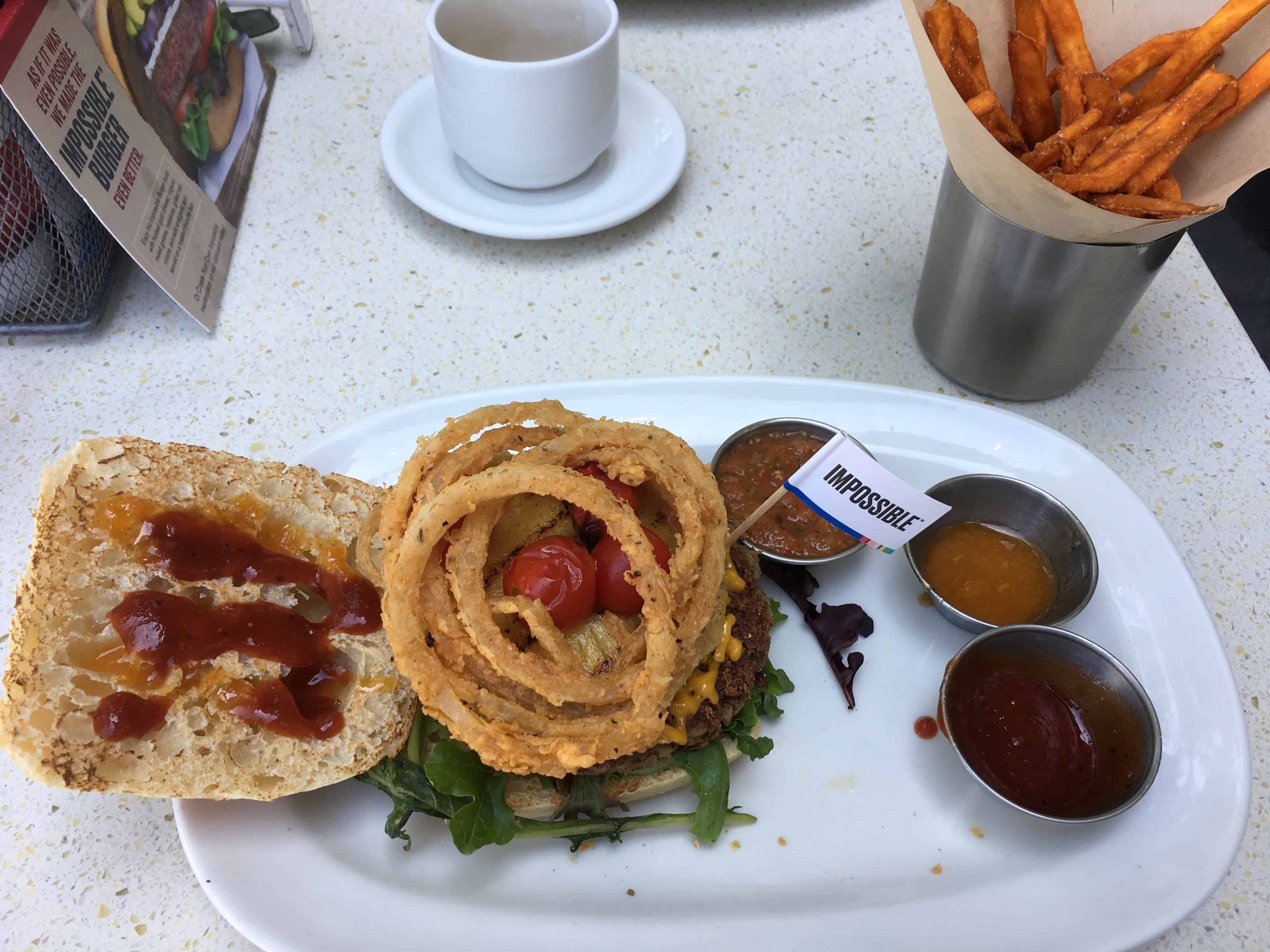
Impossible Burger, The Counter, Walnut Creek, CA, photo by Cindy Thompson, Trimazing.com
Isolated plant proteins have had the carbohydrate and fat removed, literally washed away, often with industrial solvents, leaving just the protein. Common vegetables used for protein isolation include soy, peas, and wheat. More often then not, however, these proteins are not just left in isolation, but other fats, fillers, flavors, and preservatives are added back in.
- Protein Powder (learn about more issues with protein powder here)
- Textured Vegetable Protein (TVP)
- Plant-Based Mock Meats
Note, tofu and tempeh are NOT included in this list. As you can read in Understanding Tofu and Be Tempted by Tempeh, these foods are minimally processed, made from cooked and/or fermented soy and other beans. People often ask about seitan and Soy Curls—they are fairly minimally processed, however, they are isolated proteins and should be eaten only as an occasional treat, not as a part of your daily WFPB eating pattern.
Oils

Oil is highly refined. Photo from Unsplash.com
As I wrote about in Why I Don’t Eat Oil, oil is a highly refined food you want to avoid. All oils, whether olive, coconut, or motor, are void of nutrients, extremely high in calories, use harsh chemicals during the manufacturing process, and promote chronic illness. Just avoid these altogether:
- Olive, Coconut, Vegetable, Avocado, Palm, and Any Other Oil
- Margarine
- Vegan, Plant-Based Butters
Trans fats
Trans fats are naturally present in ruminant animal-based foods, but most trans fats come from a chemical process that turns unsaturated fat into saturated fat. This process adds hydrogen (hydrogenation) to these normally liquid fats, causing them to be more solid and spreadable, softer textured, flavored, or more shelf-stable. Hydrogenated fats increase LDL cholesterol, decrease HDL cholesterol, and cause systemic inflammation in your body, which can lead to chronic illness such as heart disease, diabetes, stroke, etc.
While artificial trans fats were effectively banned in the US in 2018, foods can still be made with trans fat if manufacturers cannot find a way to reformulate their product without it. But you might not see this on the Nutrition Facts label as any processed food with less than 0.5 gram of trans fat per serving can be listed as 0 grams! Learn more about this in Just the Facts, Ma’am.
Foods that contain trans fats:
- Hydrogenated oils
- Vegetable Oils and Shortening
- Microwave Popcorn
- Fried Fast Foods, including French Fries and Doughnuts
- Commercial Baked Goods
- Potato Chips and Crackers
- Non-Dairy Coffee Creamer
- Any product from a cow, pig, sheep, lamb, goat, and other ruminant animals
Refined Sugar

Diamant Sugar Factory, photo from Pixabay.com
Many foods naturally contain sugar, a carbohydrate, such as fruit and even vegetables (there is natural sugar in mammal breast milk as well). Within these whole food forms, in the presence of fiber, water, vitamins, antioxidants, etc., this sugar is not a problem. The issue comes when these whole foods are processed to extract just the natural sugars, glucose, fructose, lactose, and maltose. These monosaccharides are stripped of all nutrition and combined to make refined sugar, which changes how your body metabolizes it, dramatically increasing your risk of chronic disease. It also targets the pleasure receptors in your brain, increasing your sweetness threshold, leading to food cravings and addictions. Here are some refined sugars to avoid, however, there are MANY names for refined sugar in food manufacturing:
- White Sugar
- Table Sugar
- Brown Sugar
- High Fructose Corn Syrup
- Corn Syrup
Artificial and Natural Colorings, Flavorings, Sweeteners, and Preservatives
Added flavors, sweeteners, colors, and preservatives, whether called natural or artificial, are extremely problematic. First, they are uber-refined to concentrate these attributes, stripped of nutrition and generally contain a multitude of additives and chemicals you don’t want in your body. Second, they trick your body by taking advantage of its natural attraction to flavors and sweetness, leading to confusion that promotes intense food cravings and addictions, weight gain, and chronic illness. Mark Schatzker has great information on this problem in his book, The Dorito Effect. Avoid foods with:
- Natural flavors, highly refined extractions (often using solvents) from plant or animal sources, like spices, animal glands, etc.
- Artificial flavors and colors, made from petrochemicals, and not from plant or animal sources at all.
- Artificial sweeteners, like Nutrasweet, Equal, saccharin, etc.
- Natural sweeteners, including stevia or monk fruit, which are highly refined extracts, whose zero-calorie property signals your brain to eat more due to the mismatch between sweetness and calorie intake.
- Preservatives, chemical additives that extend natural shelf life, like sodium nitrite.
- Added colors, which are generally artificially derived.
Genetically Modified Foods
The main reason for avoiding genetically modified foods (GMO) is to reduce your intake of pesticides or herbicides. Most GMO plant foods are genetically altered so they do not succomb to herbicides, like glycosphate (RoundUp). This helps farmers in that they can broadcast spread chemicals to kill weeds and other pests, saving labor costs and boosting production. See Should I Buy Organic? for more information.
Just Keep it Simple
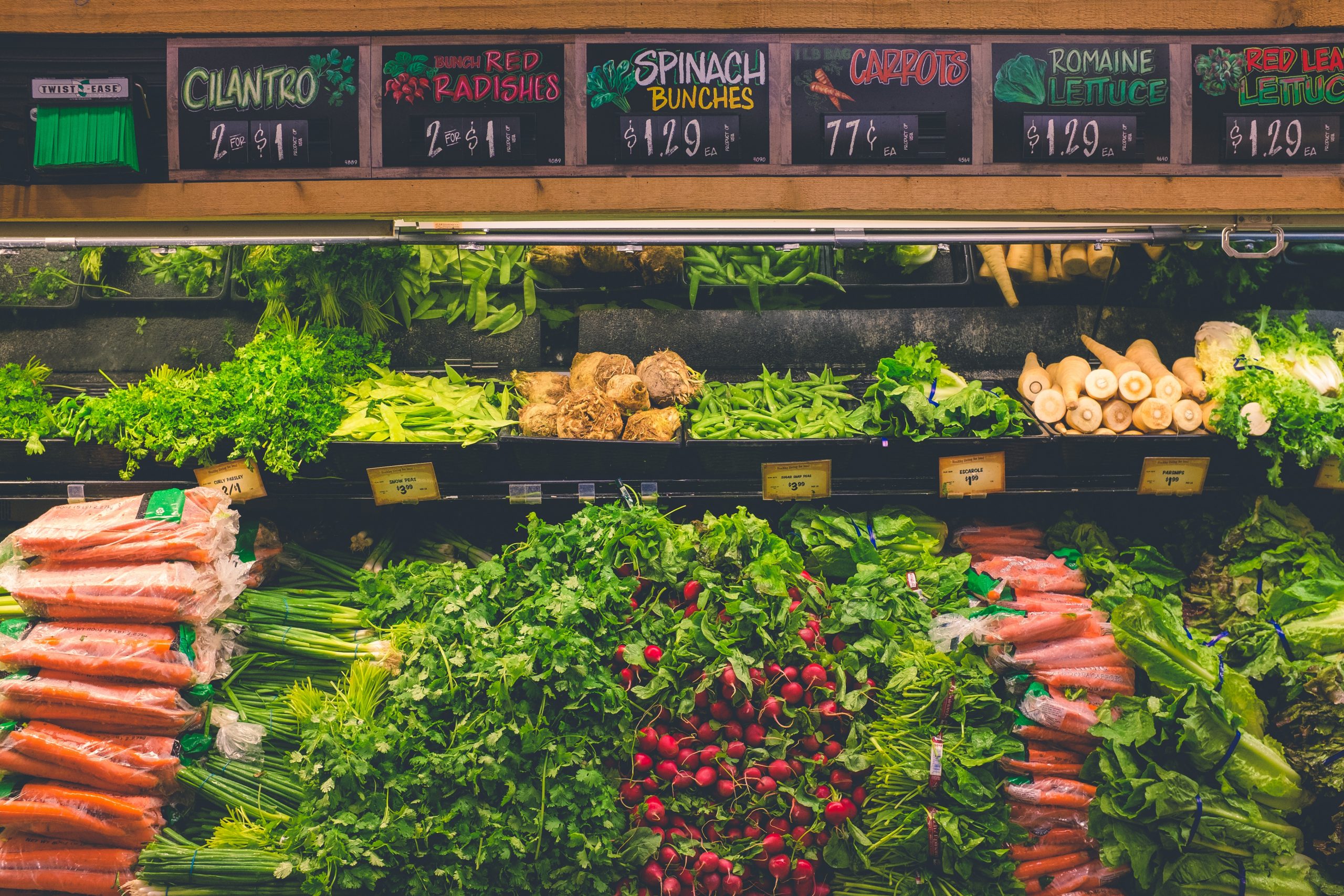
Spend most of your grocery shopping time in the produce section!
Don’t let this list of manufactured, refined, and highly processed foods discourage you. Use this information to your advantage and gravitate toward foods that don’t have labels, like fresh fruits, vegetables, mushrooms, dried beans and grains, and spices! Examine food package labels and put anything back on the shelf that doesn’t just contain a fruit, vegetable, mushroom, nut, seed, bean, grain, or water! This makes shopping easy, narrowing your grocery store down to a few easy aisles:
- Fresh Produce
- Bulk dried beans, grains, nuts and seeds
- Canned vegetables, beans, or fruit in water
- Frozen vegetables, fruit, and grains
- 100% whole grain breads and crackers
- Plant-based milks made only from nuts, seeds, beans, legumes, or grains and water
Your body, wallet, the planet, and animals will thank you!
Looking for Cooking Classes? Trimazing! Has Great Live, Online Options Coming Up!
Foods for a Healthy Heart (Click image for information and registration)
Kickstart Your Health, 7-Week Series (Click image for information and registration)
Do you like this post? Please share....
[mashshare]
3 Comments
Leave a Comment
If you liked this post, you might like one of these:
Categories:
Tags:

[Trī-māz-ing]
Cindy wants you to be Trimazing—three times better than amazing! After improving her health and fitness through plant-based nutrition, losing 60 pounds and becoming an adult-onset athlete, she retired from her 20-year firefighting career to help people just like you. She works with people and organizations so they can reach their health and wellness goals.
Cindy Thompson is a national board-certified Health and Wellness Coach, Lifestyle Medicine Coach, Master Vegan Lifestyle Coach and Educator, Fitness Nutrition Specialist, Behavior Change Specialist, and Fit2Thrive Firefighter Peer Fitness Trainer. She is a Food for Life Instructor with the Physicians Committee for Responsible Medicine, Rouxbe Plant-Based Professional, and Harvard Medical School Culinary Coach, teaching people how to prepare delicious, satisfying, and health-promoting meals.
She provides health and lifestyle coaching at Trimazing! Health & Lifestyle Coaching. Cindy can be reached at info@trimazing.com.
Subscribe to the Trimazing Blog
Receive occasional blog posts in your email inbox.
Subscribe to the Trimazing Blog
Receive occasional blog posts in your email inbox.


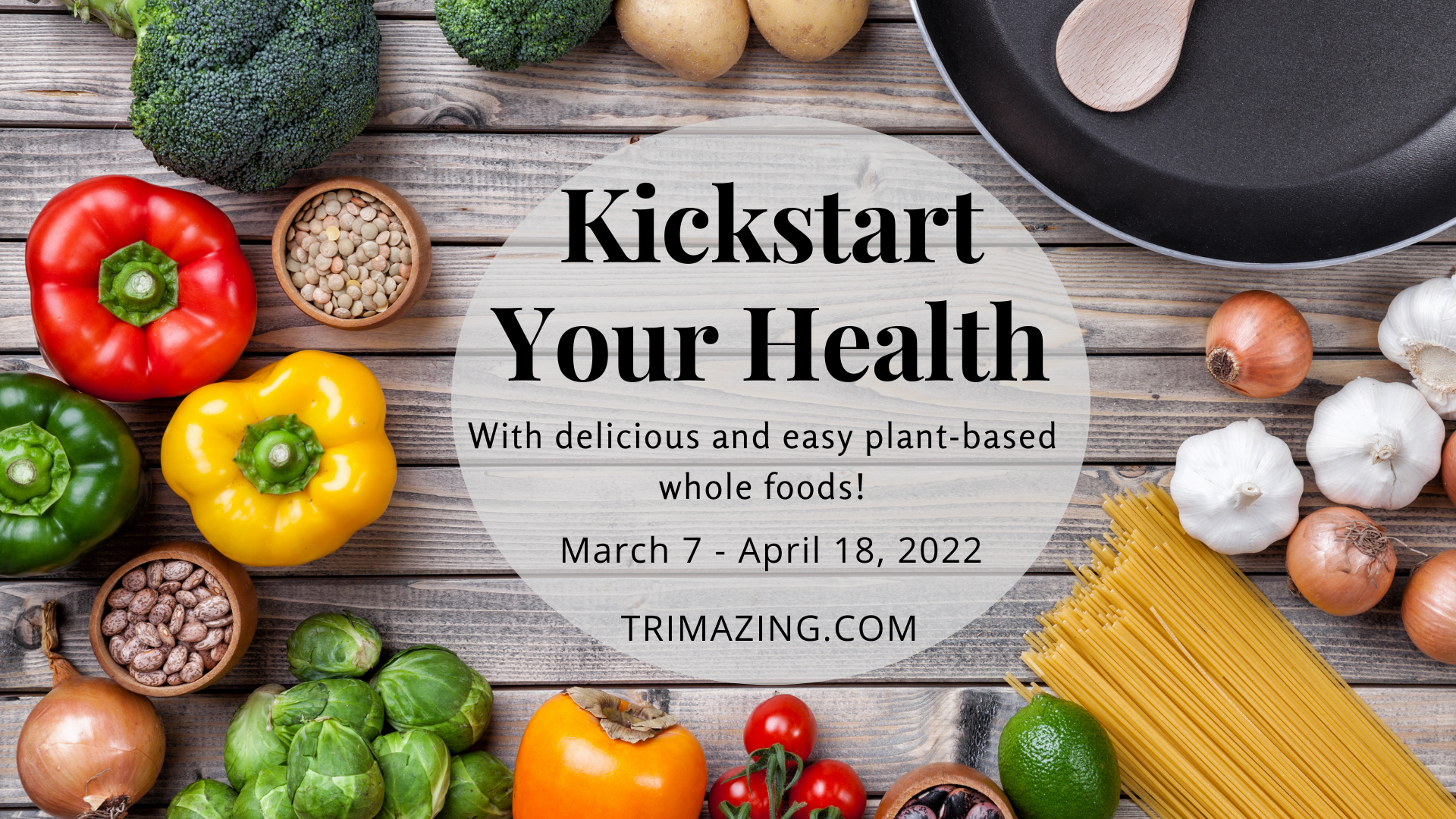





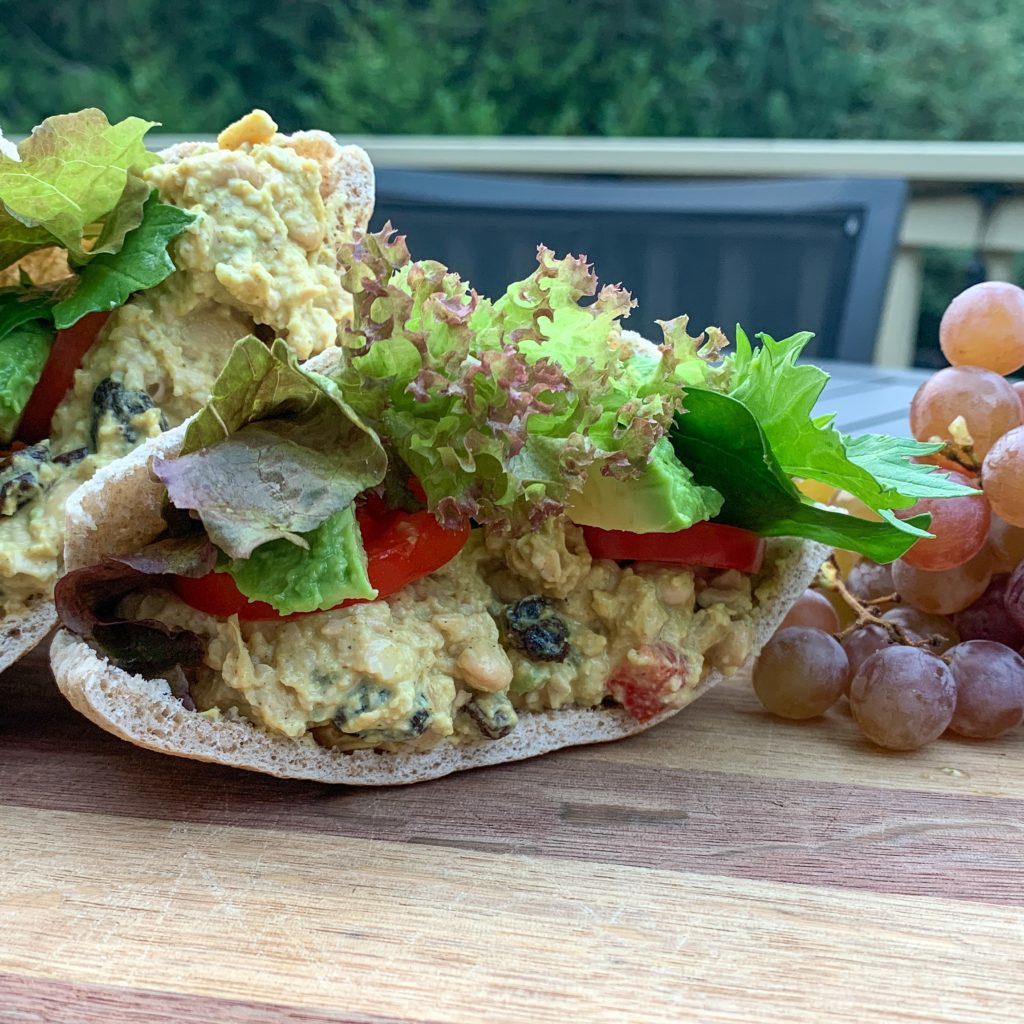

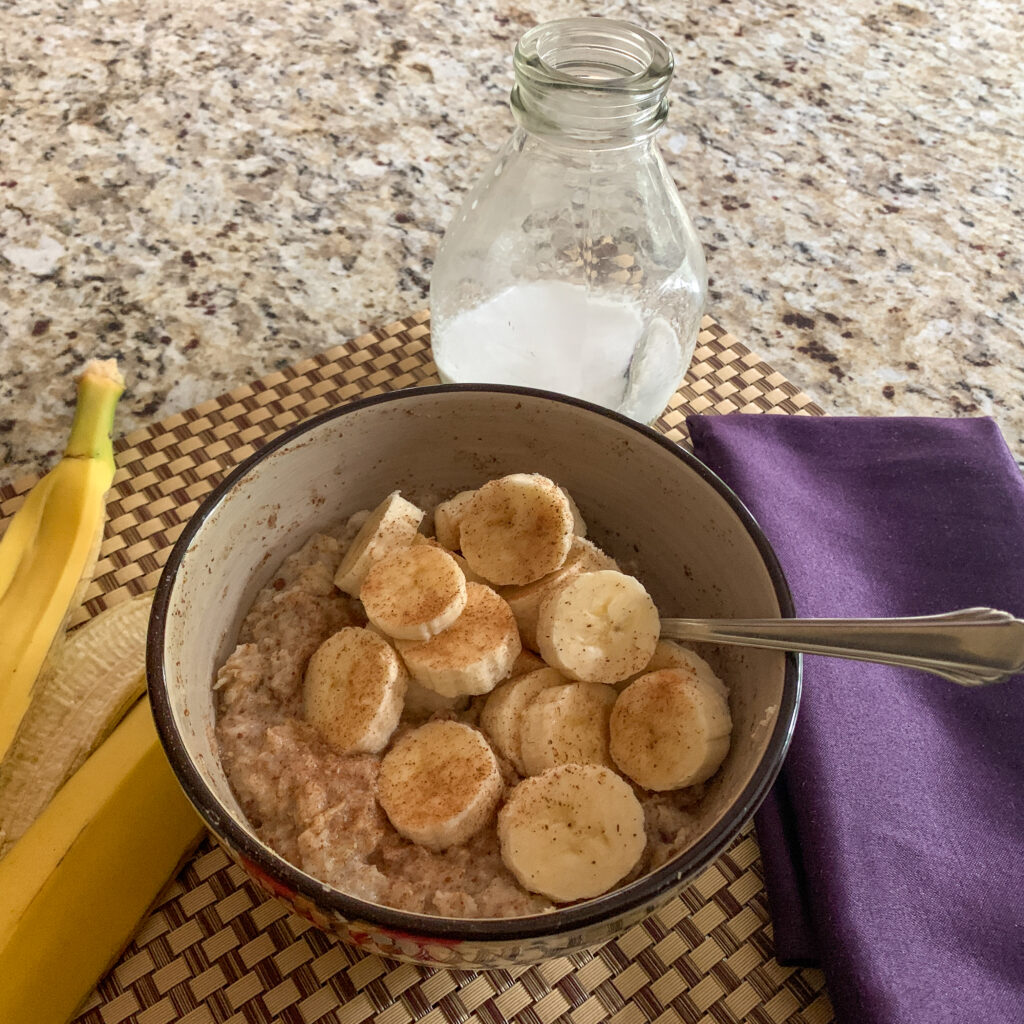

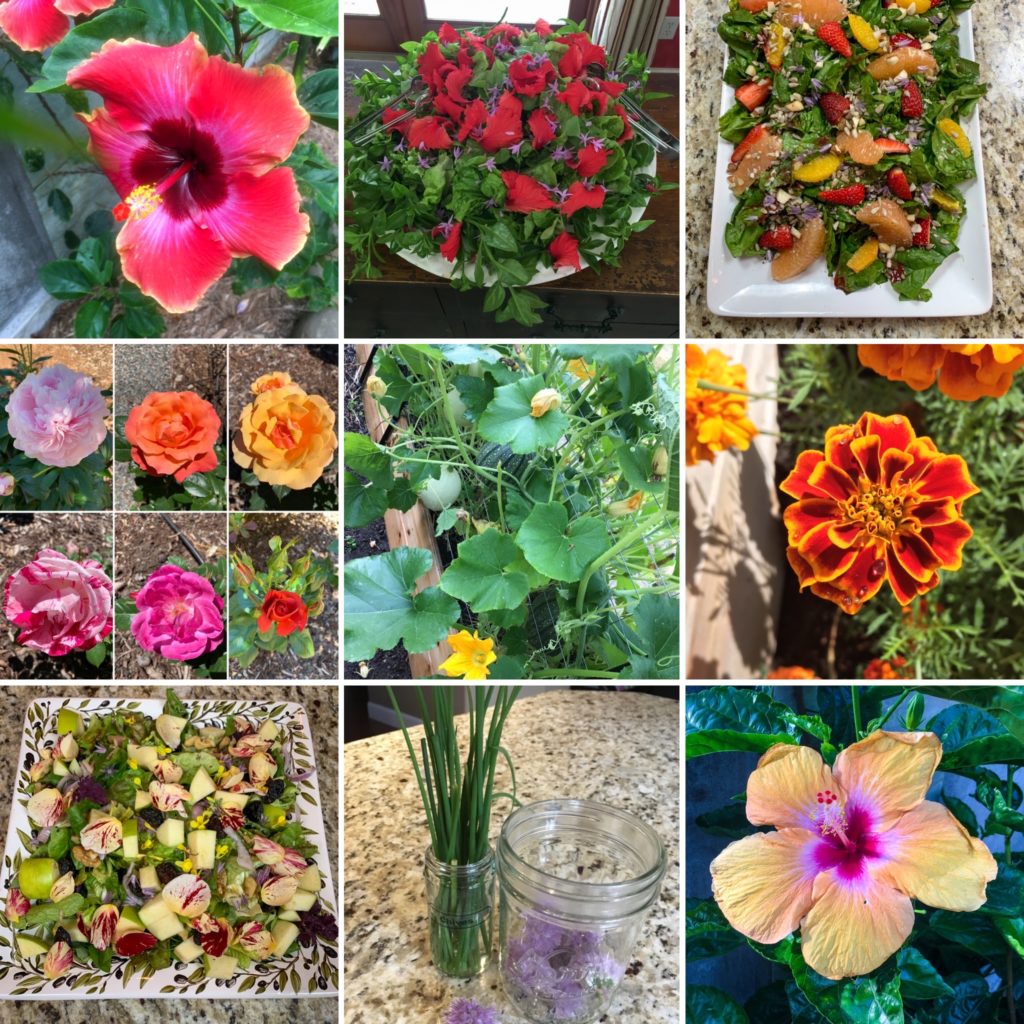


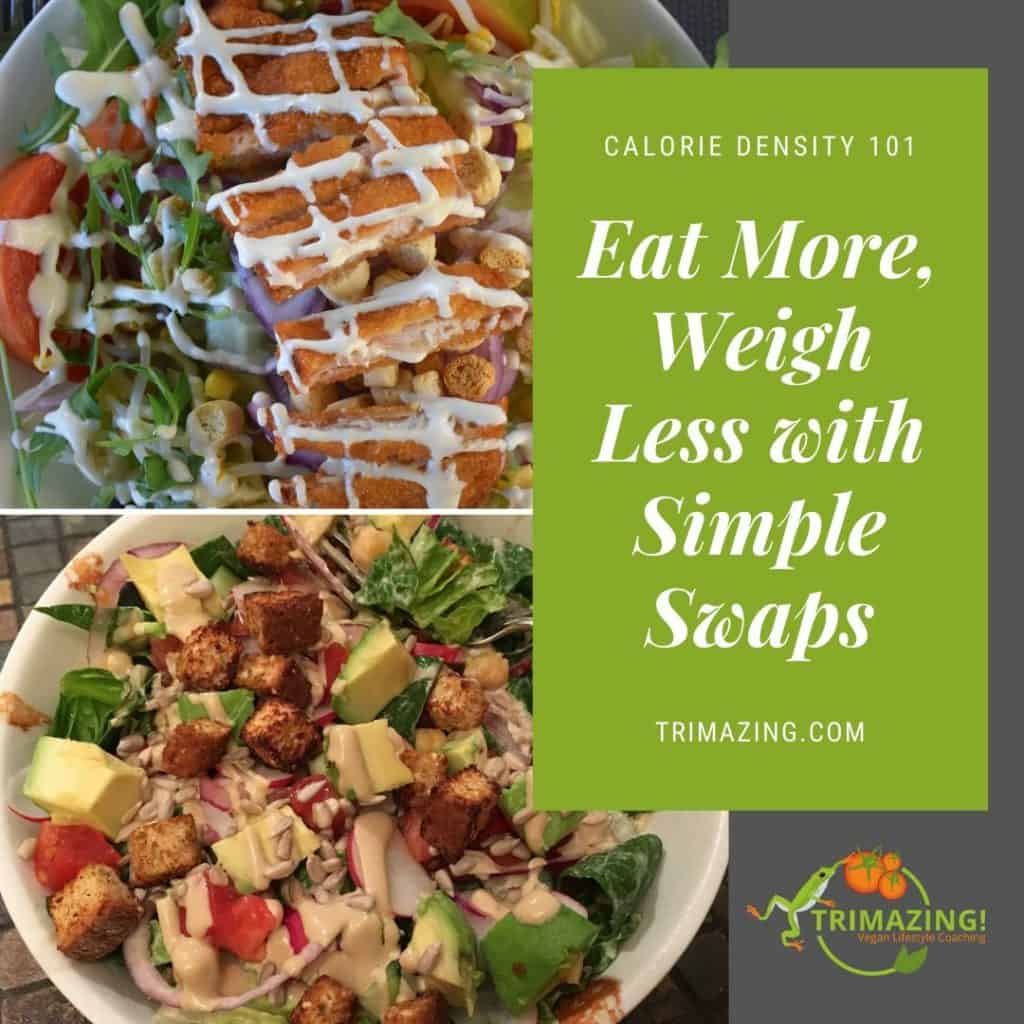

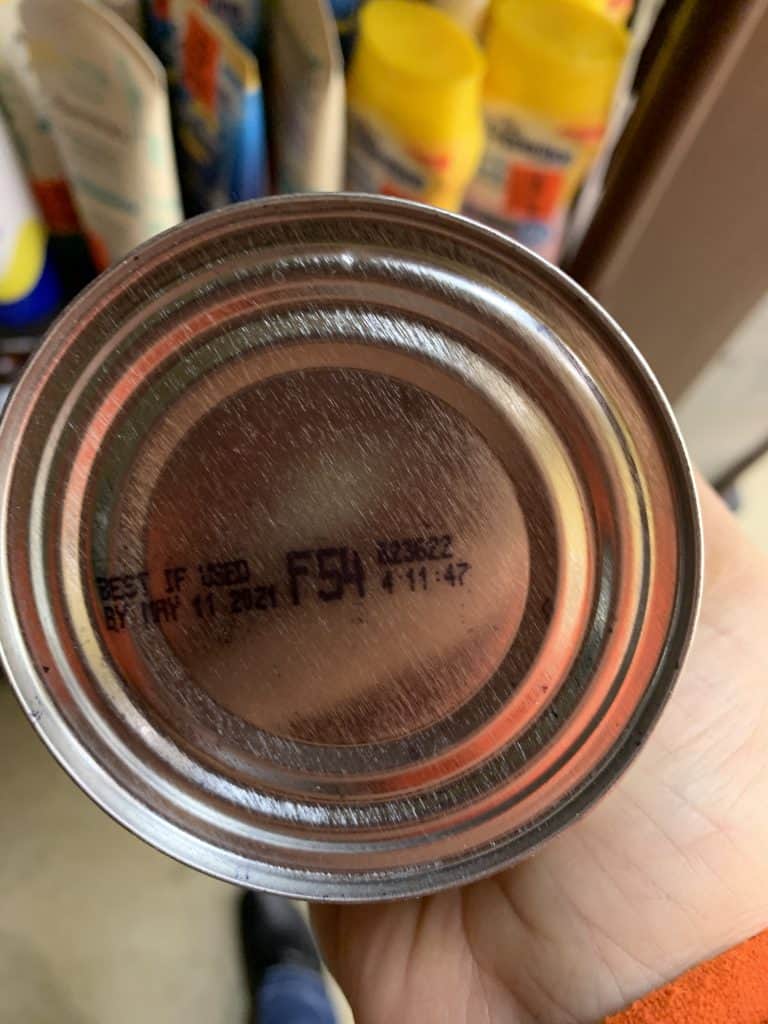

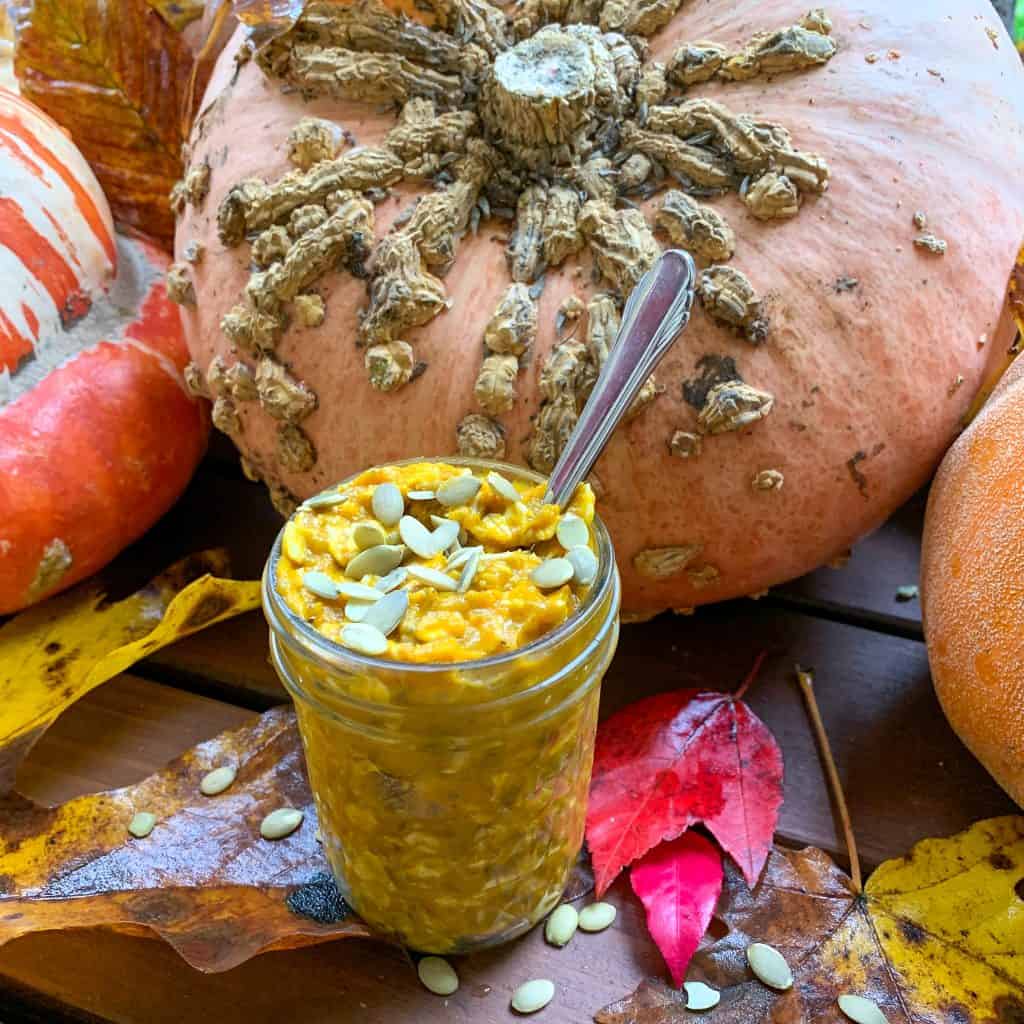



Thanks for this great article explaining what constitutes a ‘whole’ food! Very good information. I’m not sure who coined the phrase that we should avoid eating foods that are C.R.A.P (Calorie Rich and Processed) – maybe it was Jeff Novick. 🙂
Yes, Jeff Novick has Calorie Rich and Processed, others have defined CRAP foods as C: Carbonated Sodas R: Refined Foods and Sweeteners A: Artificial sweeteners, colors, and flavorings P: Processed foods and also C: Chemicals R: Refined Sugar and Flour A: Artificial sweeteners, colors, and flavorings/Alcohol P: Preservatives. I agree with all of those!
When I went SOFAS free I had to adjust a bit.
Sofas is the acronym for sugar, oil, flour, alcohol, and salt. I have my rare indulgences, but so far has worked for me.
Sugars-Blackstrap molasses and date sugar, with rare maple syrup-I am lucky, I have
never liked the taste of maple.
Oils-Rare whole avocado and whole olives (probably more olives than I should)
Flours-I stick with whole grain flours but put them on my rare list. Maybe once/month.
Brenda Davis, Registered Dietitian has recommended not to eat below rolled on
the hierarchy of grains. Ezekiel bread is made without flour and oil.
Alcohol-ok, New Year’s glass of champagne, an occasional whiskey coffee in winter or gin
and tonic in the summer. I do not keep in my home.
Salt-No added period. I do use if the chemical reaction is needed for a rare, but
appropriate recipe.
Thus far, the SOFAS free has served me well. I am down about 75 lbs in a year.
I do eat tofu on occasion. Cindy’s list of ok to go foods has served me well.
I found a definition for rare-1x/month at the most. Not each rare but appropriate recipe/month, I have to choose one from my list of recipes. I tend to use for special occasions.
Thank you for the great info Cindy.